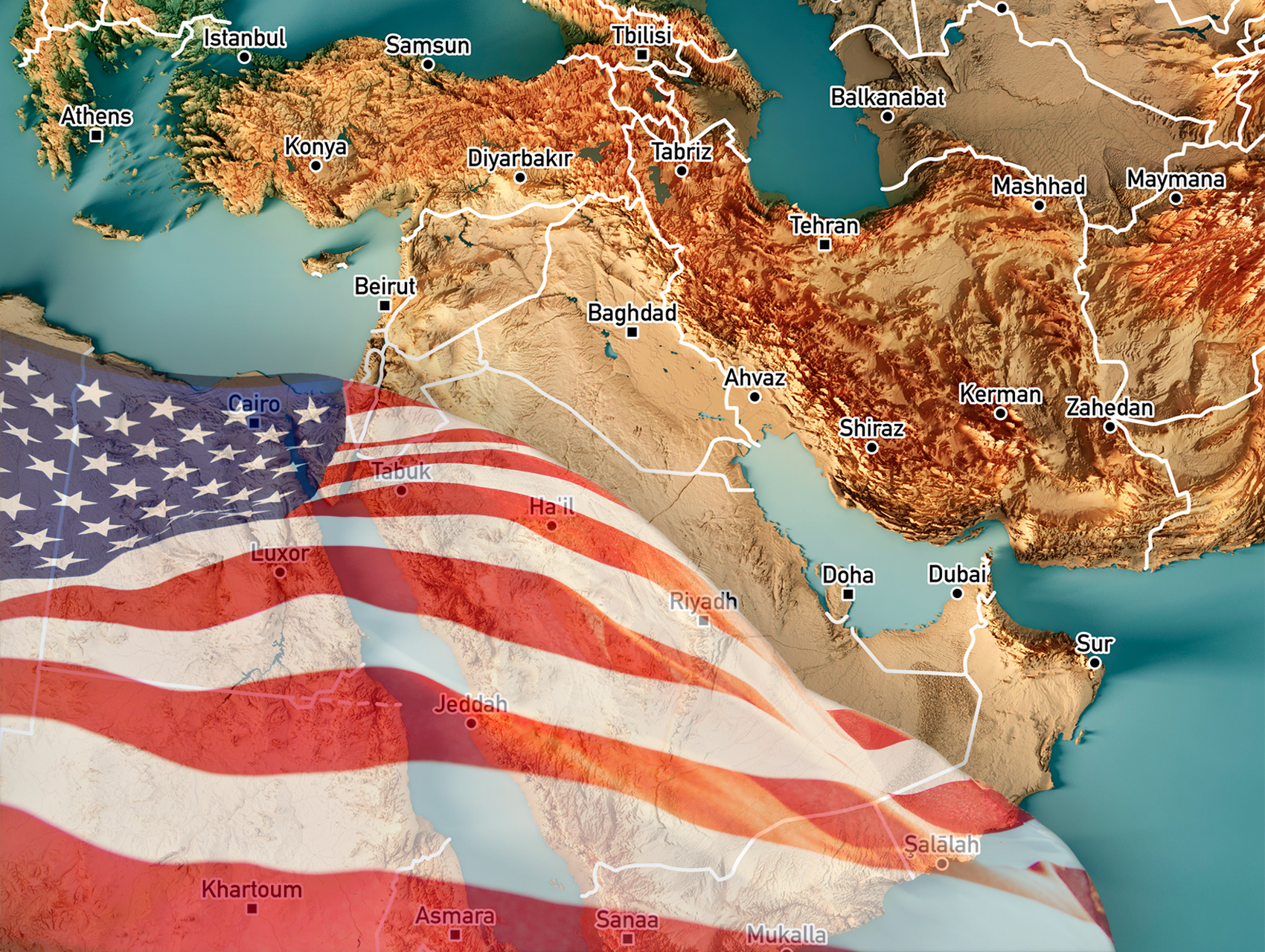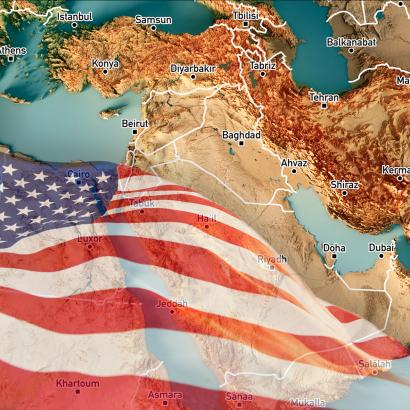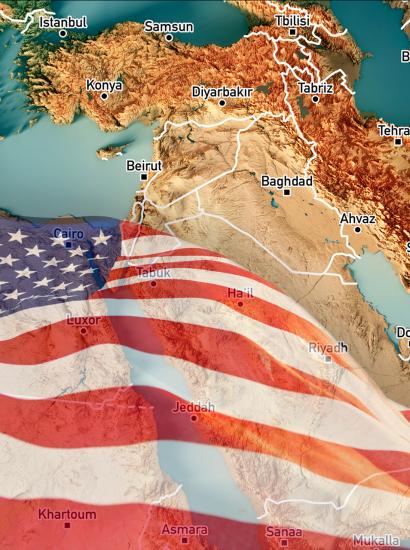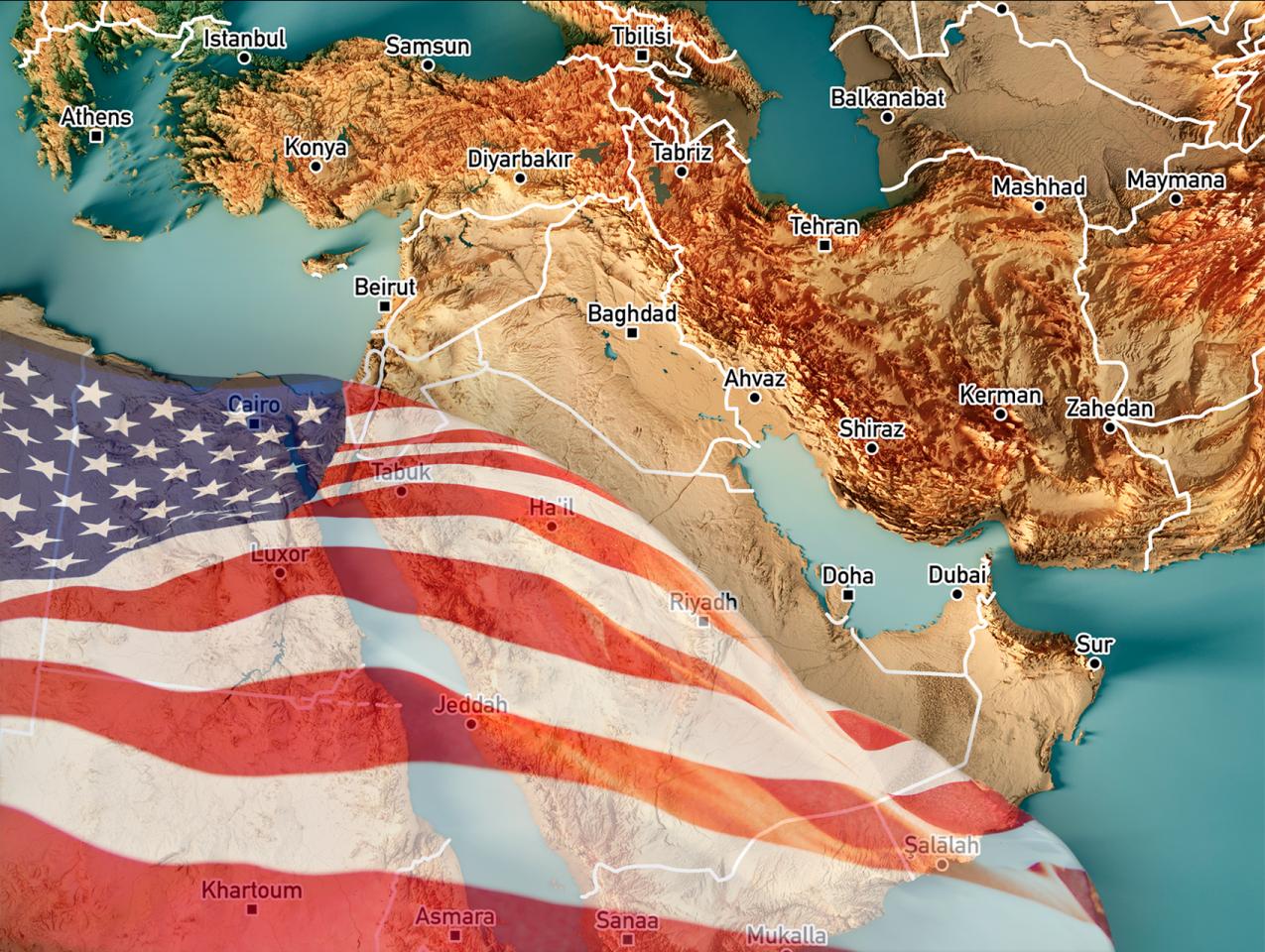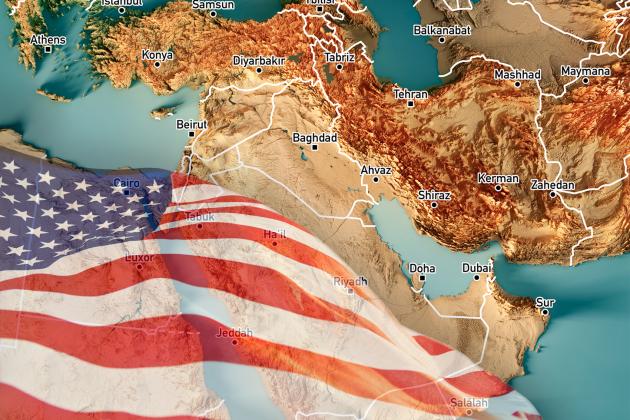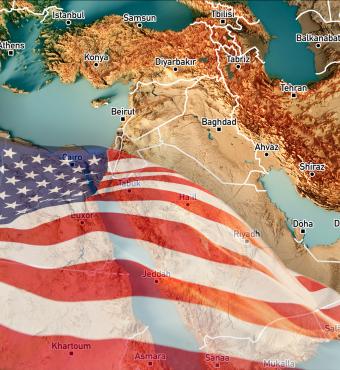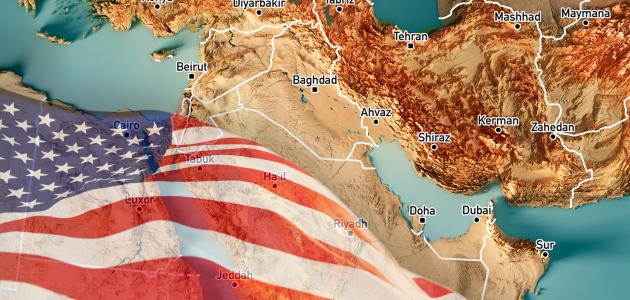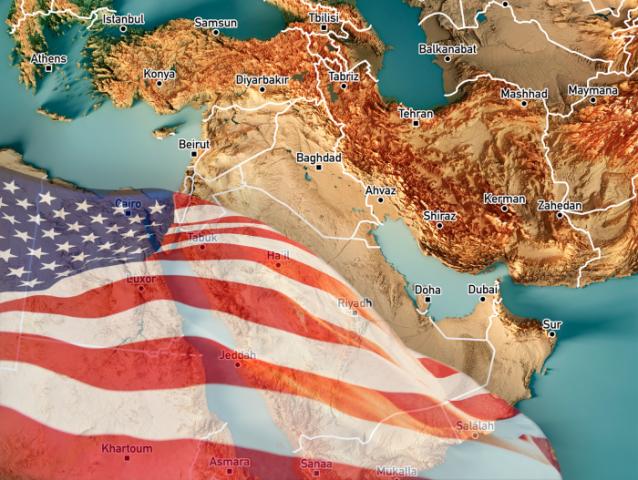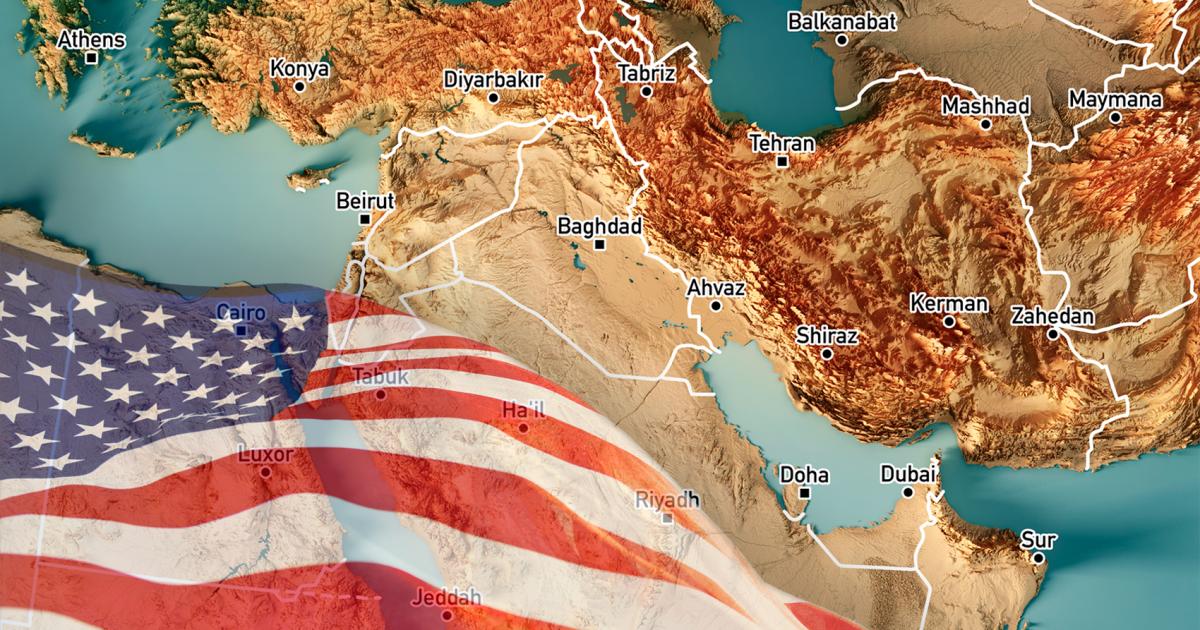- Middle East
The United States faces adversarial powers in China and Russia; that is the first principle of contemporary strategic thinking. Those challenges cast a shadow on all other foreign relations.
Because of China’s significance for the global economy and its efforts to project its power outward, it has become the primary concern for US policy makers. The “pivot to Asia” has always only meant concentrating US power in order to prevent China from becoming a hegemon in the western Pacific and to maintain the credibility of the US alliance structures with South Korea, Japan, and Australia. The Chinese goal is the opposite: diminish and ultimately eliminate US influence in the region. The US rightly resists that aspiration.
Russia is less significant economically and demographically than China, but it remains a major nuclear power. Under Putin it is pursuing a revanchist strategy along its borders in order to regain some of the standing once held by the Soviet Union. Furthermore, at least until the invasion of Ukraine, Russia used energy to expand its influence to the west and to establish a relation of dependency in, especially, the German economy. (Former German Chancellor Angela Merkel, once celebrated as the leader of the free world, bears major responsibility for that misadventure which has in fact endangered the free world.) Just as China wants to expel the US from the western Pacific, Russia pursues a long-term goal, inherited from the Soviet era, to push the US out of Europe. The Russian war in Ukraine is driven in part by the vision of reducing US and Western presence, unleashing tensions within NATO, and inciting problems for the European Union.
Facing these Chinese and Russian challenges, the Biden administration foreign policy in the Middle East is, to say the least, underdeveloped. To be sure, the region no longer has the urgency it did during the Gulf Wars or in the campaign against ISIS. Long standing issues in the Middle East, be it the perpetual government crisis in Lebanon or the instability in Libya, cannot compete for State Department attention, given the primacy of China or Russia policy questions.
There is a further explanation for this administration’s inattention to the Middle East. Its idealist inclination leads it to view all foreign policy through the lens of democracy promotion, meaning that non-democratic or “authoritarian” states are necessarily shunned. Yet democracies are few and far between in the Middle East North Africa (MENA) region. When the Biden administration convened its “Summit for Democracy” in December 2021, only two countries–Israel and Iraq–of the twenty countries in the MENA region were invited. The very frame of Biden foreign policy by definition excluded nearly all countries of the region, i.e. it is a foreign policy that, on a conceptual level, simply does not match the reality of the region. If we will only talk with democracies, then we will be lonely indeed in the wide space between Morocco and Iran.
This attention deficit toward the Middle East is unfortunate. When America is not engaged in the region endemic problems are not addressed. The prime example of this phenomenon is Syria, one of the worst humanitarian and human rights catastrophes of the era, and where the Biden administration has chosen to abdicate any responsibility. Its callous disregard of the crimes of the Assad regime, the political executions, ethnic cleansings and refugee displacements is comparable only to the inactivity of the Clinton administration during the Rwanda genocide in 1994. Both failures of US leadership damage Washington’s aspiration to moral leadership.
Yet the minimalist engagement of the Biden administration diplomacy in the Middle East is wrong not only in terms of values betrayed but with regard to realist threat assessments.. Some of the countries of the Middle East have great relevance to the primary concerns of US foreign policy, i.e. the tensions with China and Russia. In order to defeat those near-peer adversaries, a smart strategy in the MENA region is imperative. This connection is especially pertinent to policy concerning three major states: Turkey, Saudi Arabia and Iran.
Under Erdogan, Turkey has no doubt been a complicated ally. There are many points of disagreement between Washington and Ankara: The Turkish purchase of the Russian S-400s, US support for Kurdish forces that Ankara views as terrorists, the political puzzle of the Eastern Mediterranean and more. Yet Turkey remains a very significant NATO ally, and it has played a positive role in support of Ukraine. Currently, Turkey is hoping for sales of US F-16 fighter jets. At the same time, however, Ankara is holding up NATO accession of Finland and Sweden. It is therefore up to the Biden administration to move on the F-16s, bringing Congress along, but implicitly linking the sales to Turkish approval of the Scandinavian NATO expansion. Such a “transaction” would not resolve all tensions in the bilateral relations, but it would constitute a major step forward in European security in the face of Russian aggression. Ignoring Turkey–or waiting until after the May 14 elections there, for fear of giving a boost to Erdogan’s chances–harms US interests.
Relations with Riyadh have, likewise, become fraught to the point of detriment to the US. By declaring Saudi Arabia a “pariah nation,” candidate Biden backed himself into a rhetorical corner that continues to hurt American interests. The 75-year-old partnership between Washington and Riyadh is under considerable stress. Rather than antagonizing Crown Prince Mohammed bin Salman, an alternative US policy could have endorsed some of his impressive reform efforts, which are transforming the country and for which MBS has earned considerable public support. However, the personal vendetta in Biden policy has led MBS to explore alternative paths, not breaking fully with the US but at the same time exploring stronger relations with China. More robust bilateral ties between Saudi Arabia and China are obviously harmful to US strategic interests. A smarter diplomacy out of Washington could have prevented this; a changed diplomacy might clean up the mess.
Finally, Iran has been acting as a de facto ally to Russia and China. Yet at this moment, the Iranian regime is facing heroic domestic protests that have weakened its grip on power. Meanwhile the Supreme Leader, Ali Khamenei, is old and ailing. A succession struggle is sure to take place soon. This is the right time for the US to pressure Tehran, in the hope of sparking internal divisions leading to a transition. The most obvious pressure would involve an unambiguous termination of the “Iran Deal,” the JCPOA, since it is in reality defunct. Yet the Biden administration insists on hanging on to the illusion that it might be magically revived. Ending the JCPOA definitively would send a signal to the Iranian public that its current regime has failed them. Change in Tehran will benefit the US in the competition with China and Russia.
Iran is relevant for a second, more specific reason. Iran has now become an arms supplier to Russia, providing drones for use against targets in Ukraine. That unambiguous Iranian support for Russian aggression should be treated as a red line that has been crossed: Iranian support for Russia in Ukraine is grounds enough for the US to increase support to the regional opponents of Iranian expansionism. Israel is fighting Iranian forces in Syria and has also carried out drone strikes recently inside Iran. Saudi Arabia and the UAE need greater US support against Iran-backed Houthis in Yemen. Similar strategies, both military and political, could be developed regarding Iran proxies Hezbollah in Lebanon and Hamas in Gaza.
Yet despite the heroic protests of Iranians, especially Iranian women, the US response to the developing political crisis in Iran has been sluggish at best. The Biden administration has failed to provide bold strategic thinking with regard to Iran, but this is no different than its indolence in regard to Saudi Arabia and Turkey. If US policy genuinely intends to win the competitions with China and Russia, then Washington cannot continue to ignore the Middle East, which is a key theater of the global conflicts.







